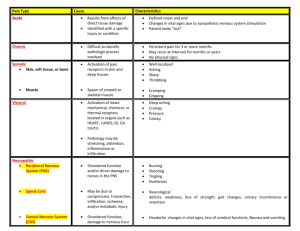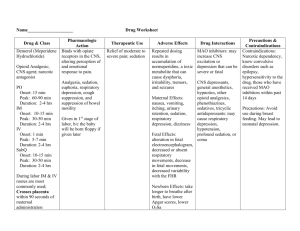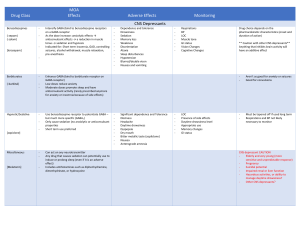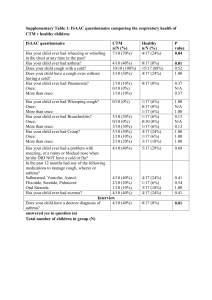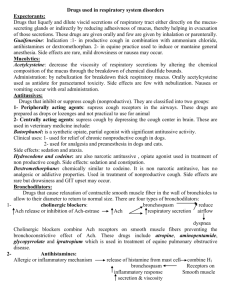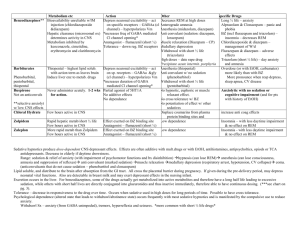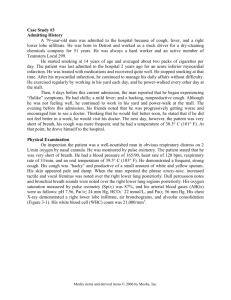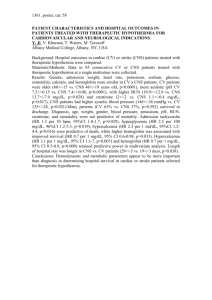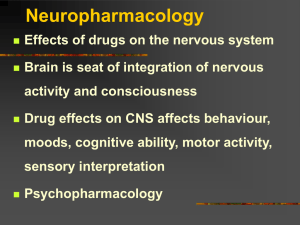Pharmacology Drug List Example
advertisement
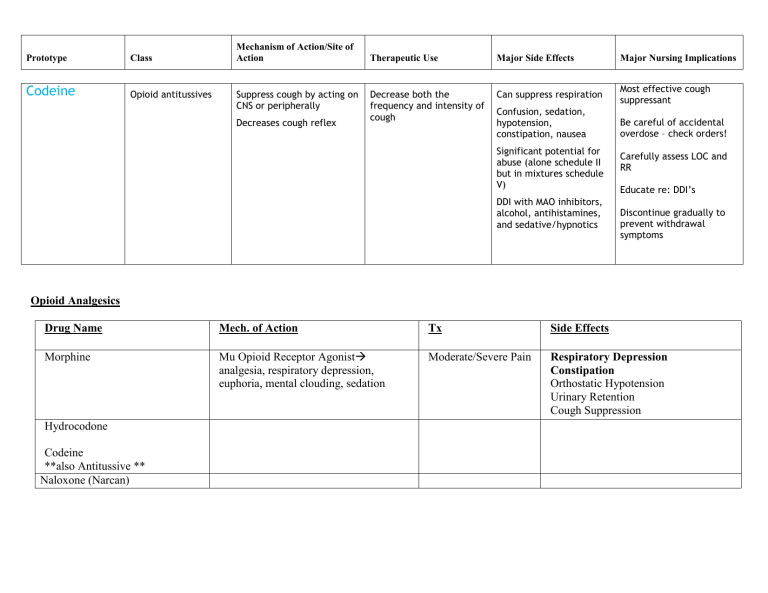
Prototype Class Codeine Opioid antitussives Mechanism of Action/Site of Action Suppress cough by acting on CNS or peripherally Decreases cough reflex Therapeutic Use Major Side Effects Major Nursing Implications Decrease both the frequency and intensity of cough Can suppress respiration Most effective cough suppressant Confusion, sedation, hypotension, constipation, nausea Significant potential for abuse (alone schedule II but in mixtures schedule V) DDI with MAO inhibitors, alcohol, antihistamines, and sedative/hypnotics Be careful of accidental overdose – check orders! Carefully assess LOC and RR Educate re: DDI’s Discontinue gradually to prevent withdrawal symptoms Opioid Analgesics Drug Name Mech. of Action Tx Side Effects Morphine Mu Opioid Receptor Agonist analgesia, respiratory depression, euphoria, mental clouding, sedation Moderate/Severe Pain Respiratory Depression Constipation Orthostatic Hypotension Urinary Retention Cough Suppression Hydrocodone Codeine **also Antitussive ** Naloxone (Narcan) Disease: Asthma Bronchodilator Drug Name Albuterol & Salmeterol Anti-Inflammatory Beclomethasone (intranasal) & Prednisone (oral) Montelukast Anti-Inflammatory Anti-Inflammatory Cromolyn (inhaled) Bronchodilator Theophylline Mech. of Action Adverse Effects Drug Class Drug Name MoA SE & Contradictions Nursing Implications CNS Depressants: Amobarbital, Phenobarbital Secobarbital GABA receptor agonist CNS sedation, coma Cardiac BP, HR , contractility Respiratory RR **Tolerance to CNS, not to respiratory depression Barbiturates Liver enzyme Inducer Category C no use in 3rd trimester X other CNS depressants Schedule II Benzodiazepines T.U. Pheno used for seizures, induction of anesthesia, insomnia Diazepam (Valium) Lorazepam (Ativan) Alprazolam (Xanax)
